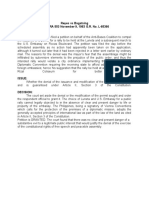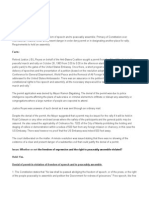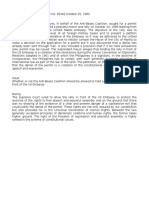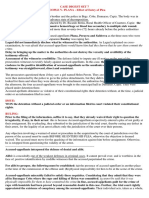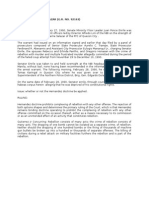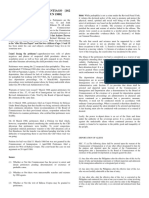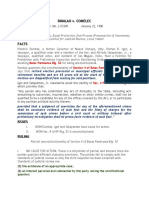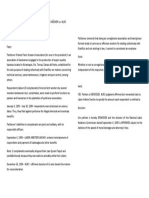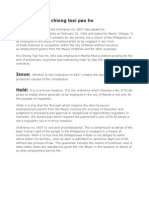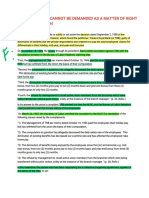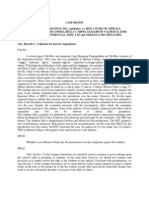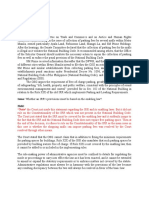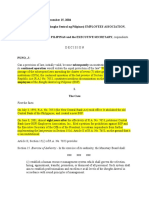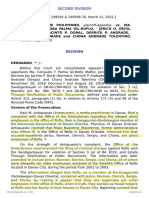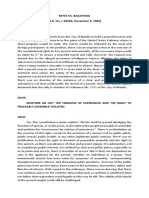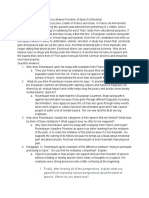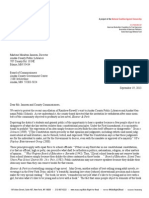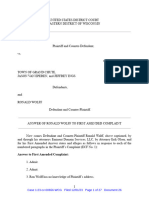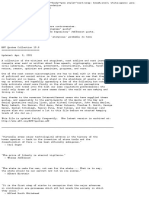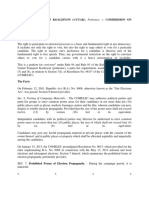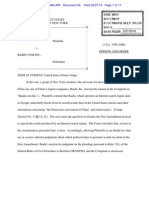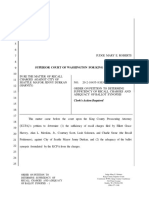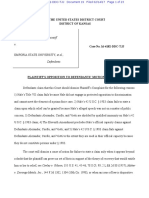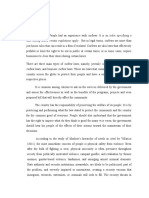0% found this document useful (0 votes)
139 views2 pagesReyes vs. Bagatsing
The petitioner sought a permit from Manila to hold a peaceful march and rally but the request was denied over security concerns. The Supreme Court ruled that the denial was unconstitutional as there was no clear and present danger to justify restricting the freedom of speech and right to peaceably assemble. While dissenting, the majority found that historic public places like Luneta are open for lawful assembly and discussion of public issues. Even if an ordinance was violated, it did not allow the respondent to deny the permit without valid justification under the Constitution.
Uploaded by
Reah Vannessa TalañaCopyright
© © All Rights Reserved
We take content rights seriously. If you suspect this is your content, claim it here.
Available Formats
Download as DOCX, PDF, TXT or read online on Scribd
0% found this document useful (0 votes)
139 views2 pagesReyes vs. Bagatsing
The petitioner sought a permit from Manila to hold a peaceful march and rally but the request was denied over security concerns. The Supreme Court ruled that the denial was unconstitutional as there was no clear and present danger to justify restricting the freedom of speech and right to peaceably assemble. While dissenting, the majority found that historic public places like Luneta are open for lawful assembly and discussion of public issues. Even if an ordinance was violated, it did not allow the respondent to deny the permit without valid justification under the Constitution.
Uploaded by
Reah Vannessa TalañaCopyright
© © All Rights Reserved
We take content rights seriously. If you suspect this is your content, claim it here.
Available Formats
Download as DOCX, PDF, TXT or read online on Scribd
/ 2
